| Links |
| » View My Photo |
 |
| » Reschedule Photo Appt |
 |
| » Request a Make-Up Day |
 |
| » Place Order Correction |
 |
| » Request a Proposal |
 |
| » Place an Order |
| |
| Ordering Instructions |
| » Register |
| » Go to Photo Day and click products. |
| » Find the size print(s) you'd like and click add to cart. |
| » Go to View My Photo-write down event name and image #. |
 |
Or you can order by phone.
408-247-0774 or cell: 408-858-8475. |
 |
| |
| Testimonial |
September 16, 1986
Dear Wayne,
"Thank you again for the excellent job you did at Patty and Clarke's wedding. We especially appreciated your ability to do things in an orderly manner and yet in a joyful and easy way and without taking too much time."
Sincerely,
Peggy Dorst
|
|
 |
|
Wedding Photography Frequently Asked Questions
| Since choosing a photographer is not an everyday event, nor is your wedding, Wayne Salvatore answers the most frequently asked questions about wedding photography. |
What are the advantages of hiring a professional?
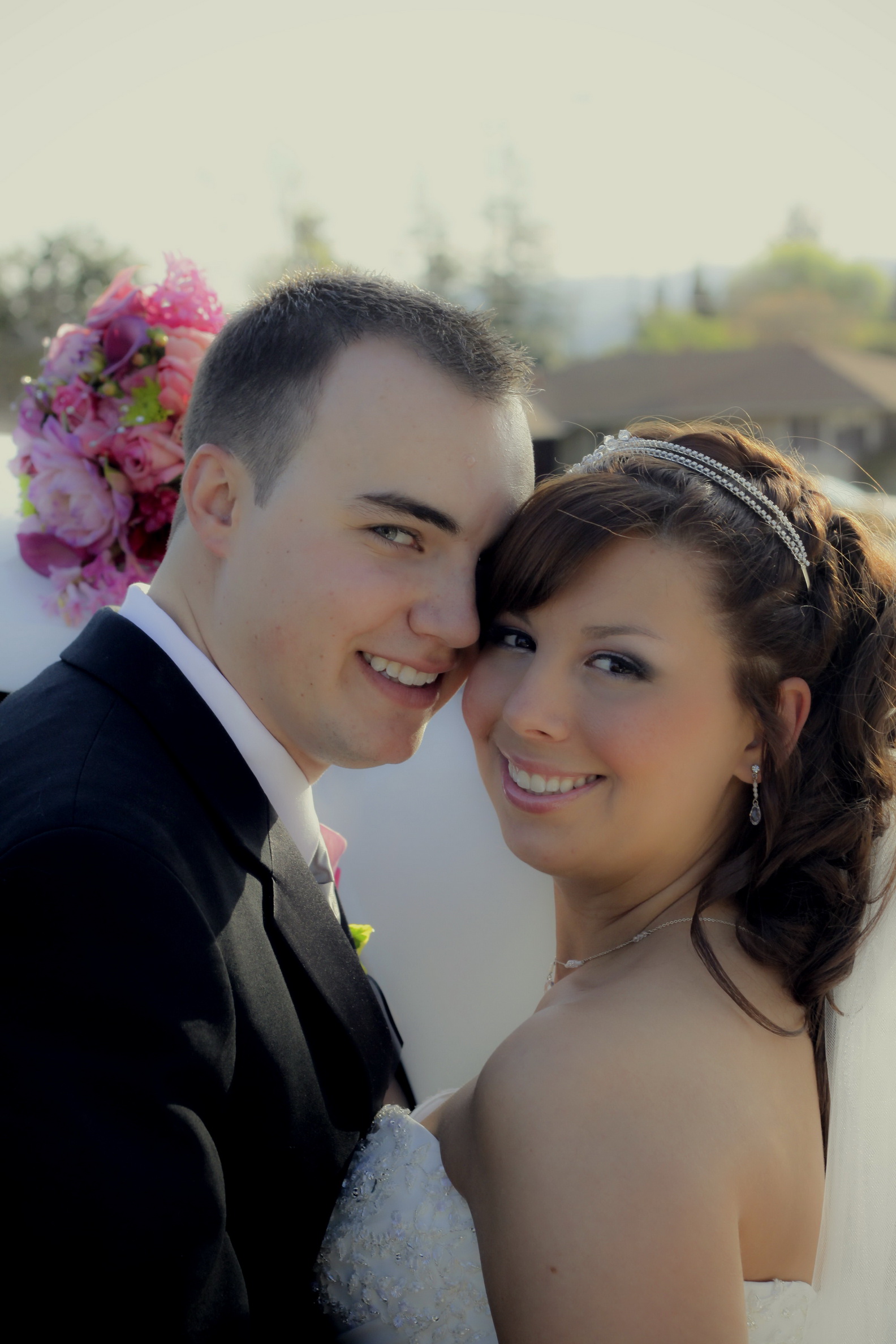
A professional photographer will be timely - arriving at your wedding promptly, and getting the results to you on time. A professional has just the right equipment and flash memory cards for photographing your wedding. Having attended many weddings, an experienced wedding photographer will be at ease at your wedding. A professional uses a color laboratory that is in the business of meeting high professional standards of print quality. And, a professional is used to working with individuals, couples, and groups to make the formal photography go smoothly. When you think about the cost of photography, remember that the photographer's fee is only part of your investment: You, your parents, your extended family and your friends will be investing time with the photographer during your wedding. Don't waste time on your wedding day with a photographer who won't produce results you love!
|
So, I want a professional to photograph my wedding. What do I do next?
Visit wedding photography web sites, then choose photographers to call. Emailing is not personal enough for wedding photography. If.jpg) you like the photographer on the phone, go visit his/her studio. When looking through sample albums pay attention to your emotional response to the photography and to the communication skills of the photographer. Look for high technical quality too. Once you have decided on a photographer whose work has meaning to you, discuss prices, deposits, packages, quantity of pictures and so on. you like the photographer on the phone, go visit his/her studio. When looking through sample albums pay attention to your emotional response to the photography and to the communication skills of the photographer. Look for high technical quality too. Once you have decided on a photographer whose work has meaning to you, discuss prices, deposits, packages, quantity of pictures and so on.
What is the first question I should ask the photographer?
.jpg)
Once you have established that the photographer is available for your date and location, you will want to ask, "If we select your studio, will you be the photographer covering our wedding?" Some studios have several photographers and you may be speaking to a salesperson. The sample albums may have been done by photographers who do not even work for the studio anymore. If this is the case, you should make arrangements to meet with and see the work of the particular photographer who will be doing your wedding. You should also ask for a commitment from the studio to that effect, in writing.
Shouldn't I be asking "What do I get and how much does it cost?"
Even shopping for shoes or furniture you wouldn't ask that question until you find the style and quality you like. After you have looked through a photographer's portfolio - seeing candids, formals and illustrative pictures, you will know if this photographer has the 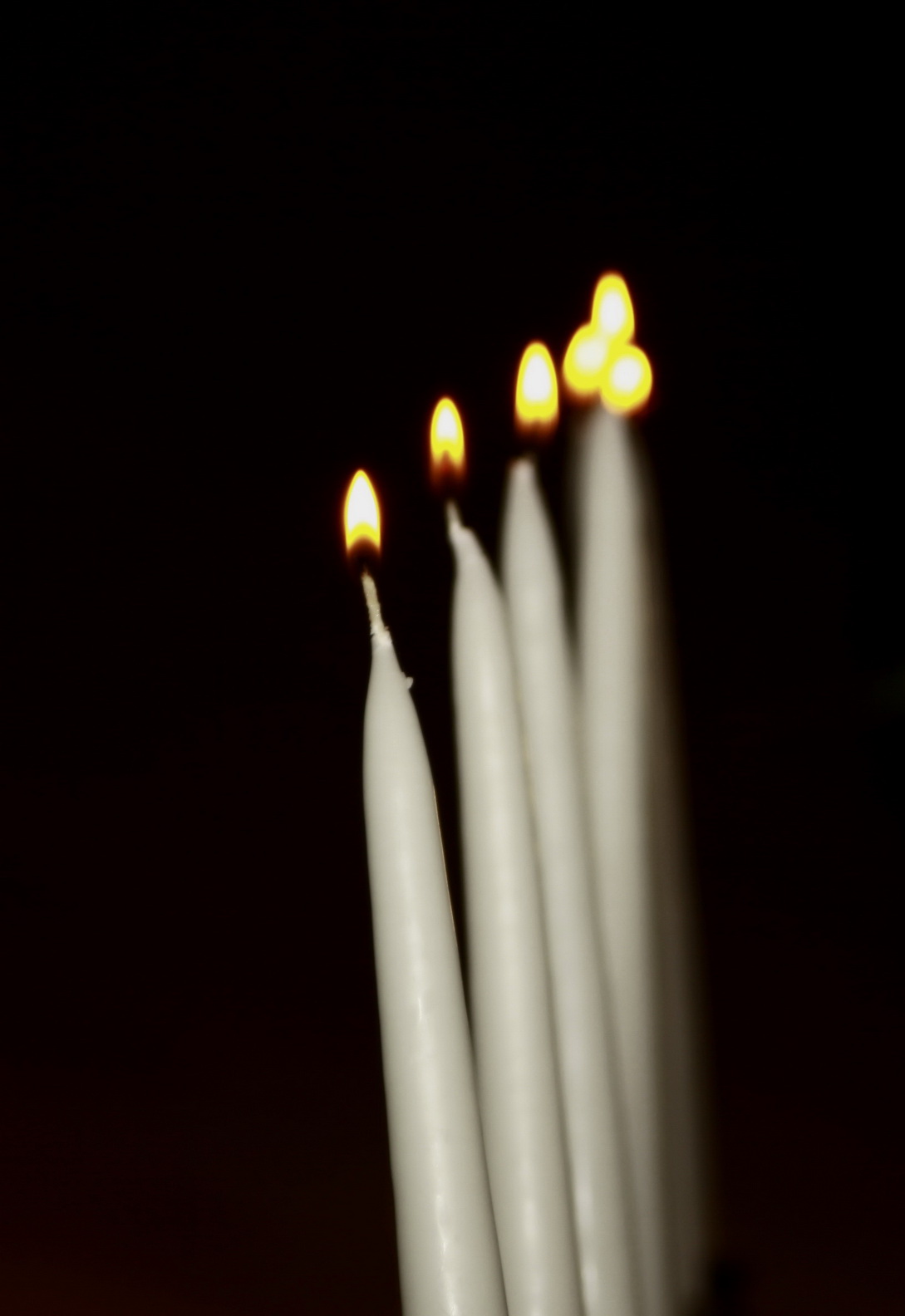 technique, style and spirit to be the eyes through which you and your children will see your wedding day. Of course, you should determine if the photographer is within your budget, give or take a little, but what you really want from photography is memories and feeling. Look for an established and reliable photographer whose work moves you, whose technical quality is tops. If you find a photographer who makes you happy, you never will regret your investment, whatever the dollar cost. When we have invested in items that will be with us for the rest of our lives, our satisfaction has been highest when we have paid that extra bit for the best quality. technique, style and spirit to be the eyes through which you and your children will see your wedding day. Of course, you should determine if the photographer is within your budget, give or take a little, but what you really want from photography is memories and feeling. Look for an established and reliable photographer whose work moves you, whose technical quality is tops. If you find a photographer who makes you happy, you never will regret your investment, whatever the dollar cost. When we have invested in items that will be with us for the rest of our lives, our satisfaction has been highest when we have paid that extra bit for the best quality.
So, how much does wedding photography cost?
Prices range from $950 to $10,000, and even more! Photographs (and maybe video) will be your only permanent record of the day. You want good photographs (or you would not have read so far), so be prepared to spend a minimum of $1,500. Reprints will be $15 to $45 each. Expect better photographers to charge the higher rates. In other words, it is reasonable for an unexperienced photographer to charge you as little as $10 for a print. And, it is reasonable for an excellent photographer to charge you $40 for a print of the same size. That is because you are getting better service and a better product from the experienced professional. If you are looking for a bargain and shop via phone for pricing, you are following a recipe for poor to mediocre photography. My research indicates that photography runs between 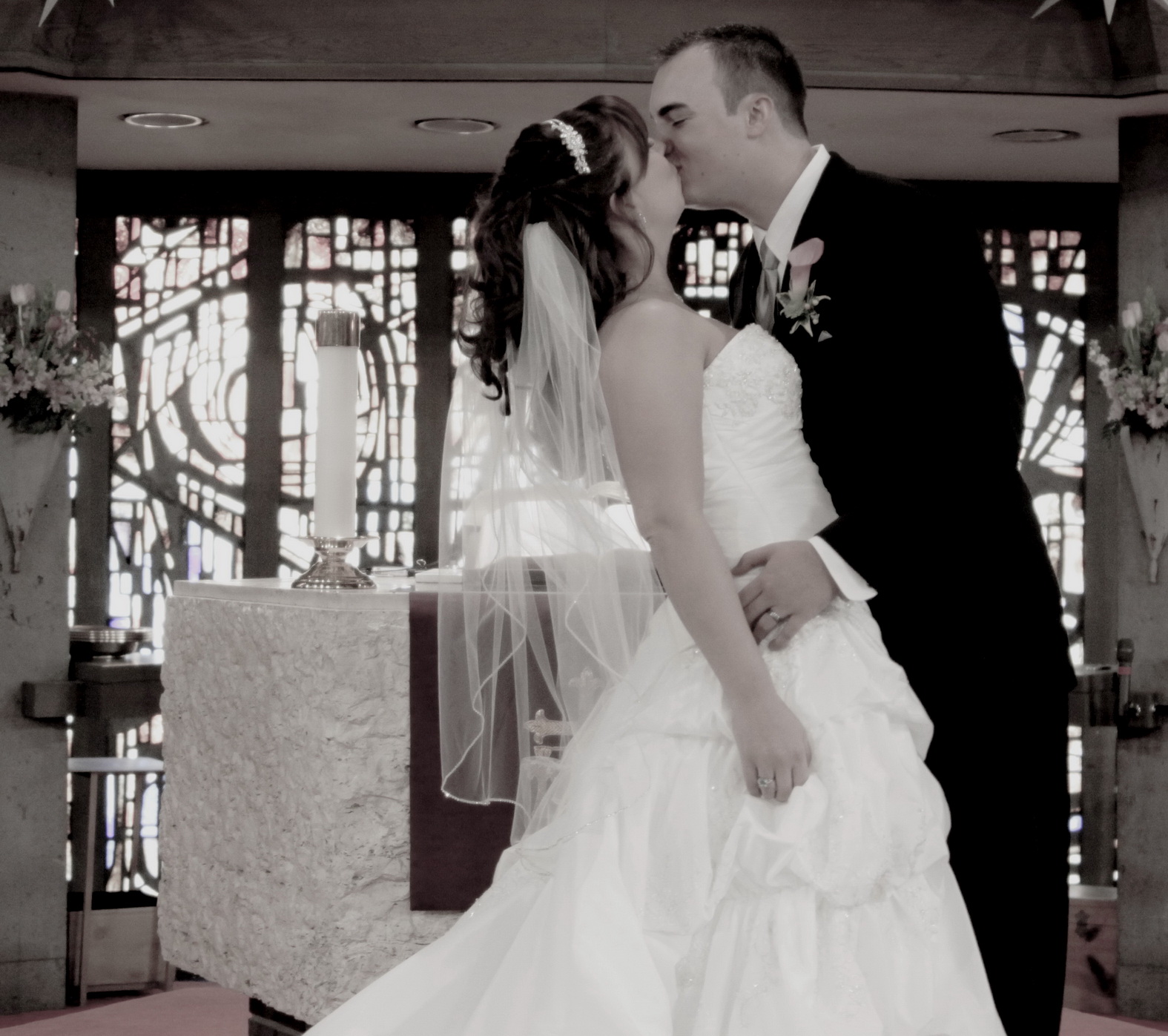 nine and fifteen nine and fifteen 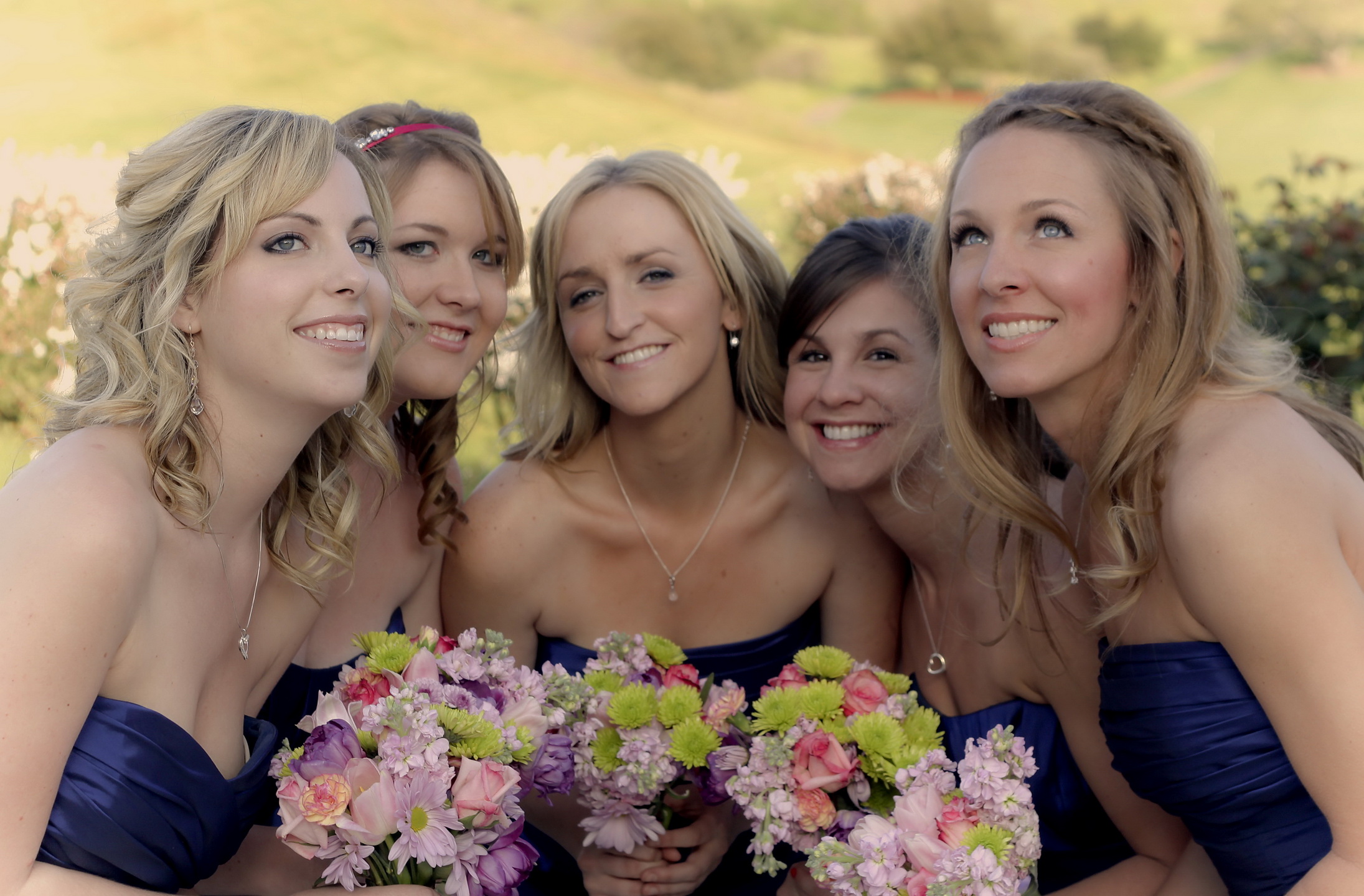 percent of the total wedding budget. When couples value photography highly and are on a limited budget, they will spend up to 30% of their wedding budget on photography. Most brides initially underestimate the cost of photography by 50% - in other words, you will probably spend at least twice as much as you budgeted, unless you have advice from a wedding coordinator who is familiar with prices in your area. percent of the total wedding budget. When couples value photography highly and are on a limited budget, they will spend up to 30% of their wedding budget on photography. Most brides initially underestimate the cost of photography by 50% - in other words, you will probably spend at least twice as much as you budgeted, unless you have advice from a wedding coordinator who is familiar with prices in your area.
We want to spend no more than $1,500, but all the good photographers start at $2,000 and up. Why is it so expensive?
Because photography is not a commodity. Because some people can see the difference between poor photography and good photography, and they are willing to pay for it. Because to make a living at photography, the artist must gross an average of $3,000 to $6,000 per wedding. Because if the not-good-enough-yet photographers charged more than $1,500 he/she would never get a chance to practice at a real wedding. Because a professional photographer knows that his/her expenses and overhead, even with digital photography, even with the smallest package, are $1,500 to $2,000 per wedding.
We're having a small wedding, with thirty people, and only wanted to spend $1,500 on pictures. What can we do?
The first thing to do if you want a professional photographer under these circumstances is to be flexible. A true wedding professional only can only work so many weekends a year, and reasonably expects one or two large weddings per weekend from May through October, or year round in tropical climates. If he/she reserves a prime Saturday or Sunday in October for you, then larger weddings will have to be turned away. If your budget 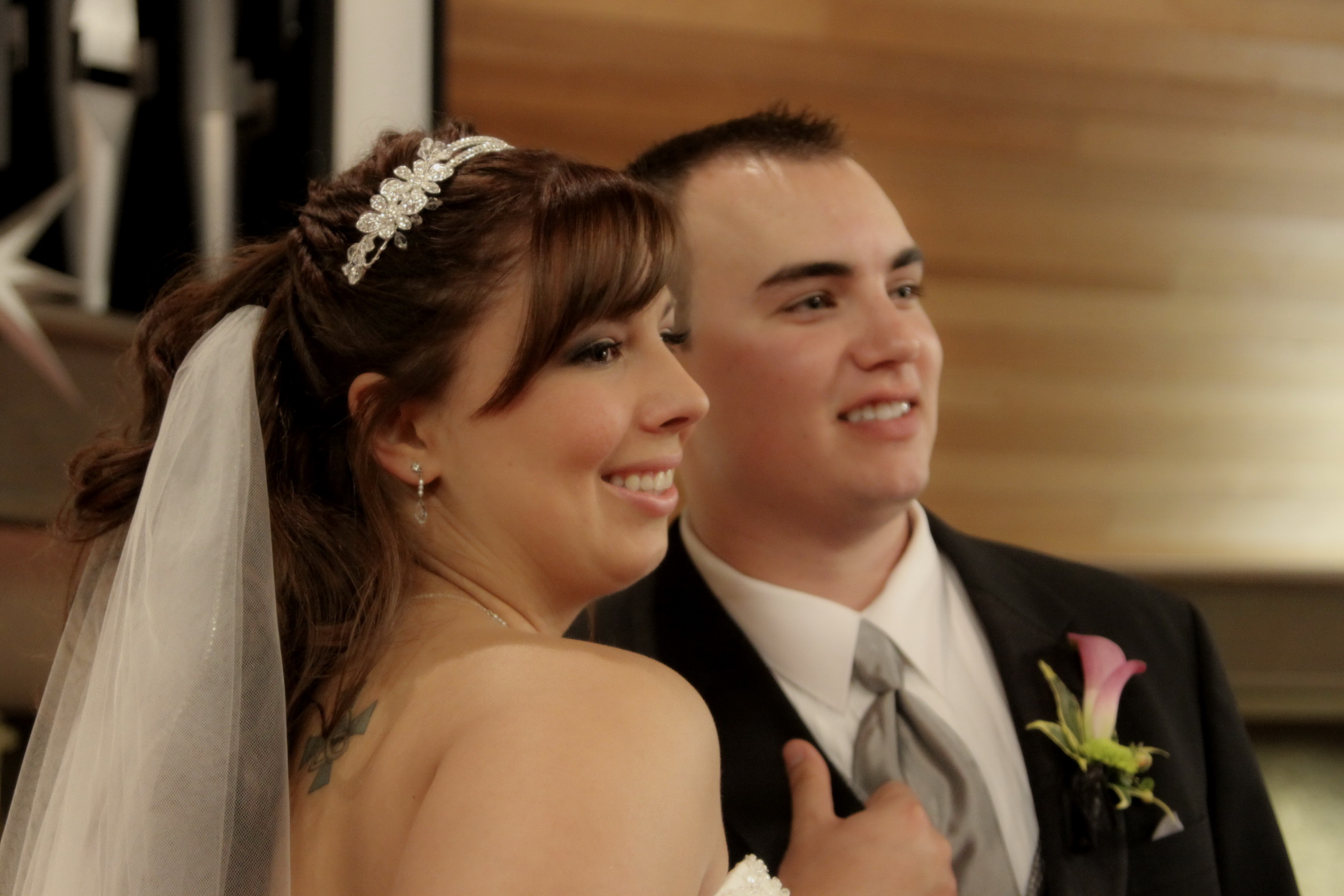 is small, you will be choosing from the second and third tiers of wedding photographers. If you plan your wedding in the evening or especially early in the day, you might find a photographer who can fit you in after or before another event, and thus be able to work with your budget. Unfortunately, when you are limiting yourself to a smaller photo budget you can expect lower quality photographs. is small, you will be choosing from the second and third tiers of wedding photographers. If you plan your wedding in the evening or especially early in the day, you might find a photographer who can fit you in after or before another event, and thus be able to work with your budget. Unfortunately, when you are limiting yourself to a smaller photo budget you can expect lower quality photographs.
What does Wayne Salvatore Photography charge for a Saturday or Sunday Wedding?
Costs, which include a DVD, 4x6 proofs and a wedding book start at $5,000. A DVD and proofs of your wedding start at $1500.
How much time will the photographer spend at my wedding?
That is really up to you. You can have the photographer meet you where you are getting dressed, and keep taking pictures until you leave the reception. Or you may just want a few hours of photography, with a few formal photographs and some pictures of the ceremony. (If you choose a high quality professional, the price difference between short and full coverage will be small.) My typical coverage starts two or three hours before the ceremony and ends after the bouquet, garter and cake.
What are proofs?
Sixty years ago, photographers presented clients with proof pictures printed on special paper; images would last for a few weeks and then fade. Then for a few decades proofs were made with the same paper and chemistry as the finished prints, but without retouching, cropping or precise color and density correction. Now proofs are usually in digital form - on a website, CD, DVD, or a projection in the photographer's studio. Because some customers can scan photographs, printed proofs are a problem for the professional. Typically, now, you initially view the images on a computer or television screen. You then order from the screen and have photographic prints in your hand a few weeks later. Digital printing can be done on an inkjet or color laser, but the latest photographic papers from Kodak and Fuji have a life-span of over 100 years. Many inkjet prints will fade decades sooner that photographic prints. From the photographer's point of view, proofs are becoming a liability. Dishonest clients are scanning the proofs and making prints. Just as DVD manufacturers have made it difficult to copy their product, photographers will move towards proof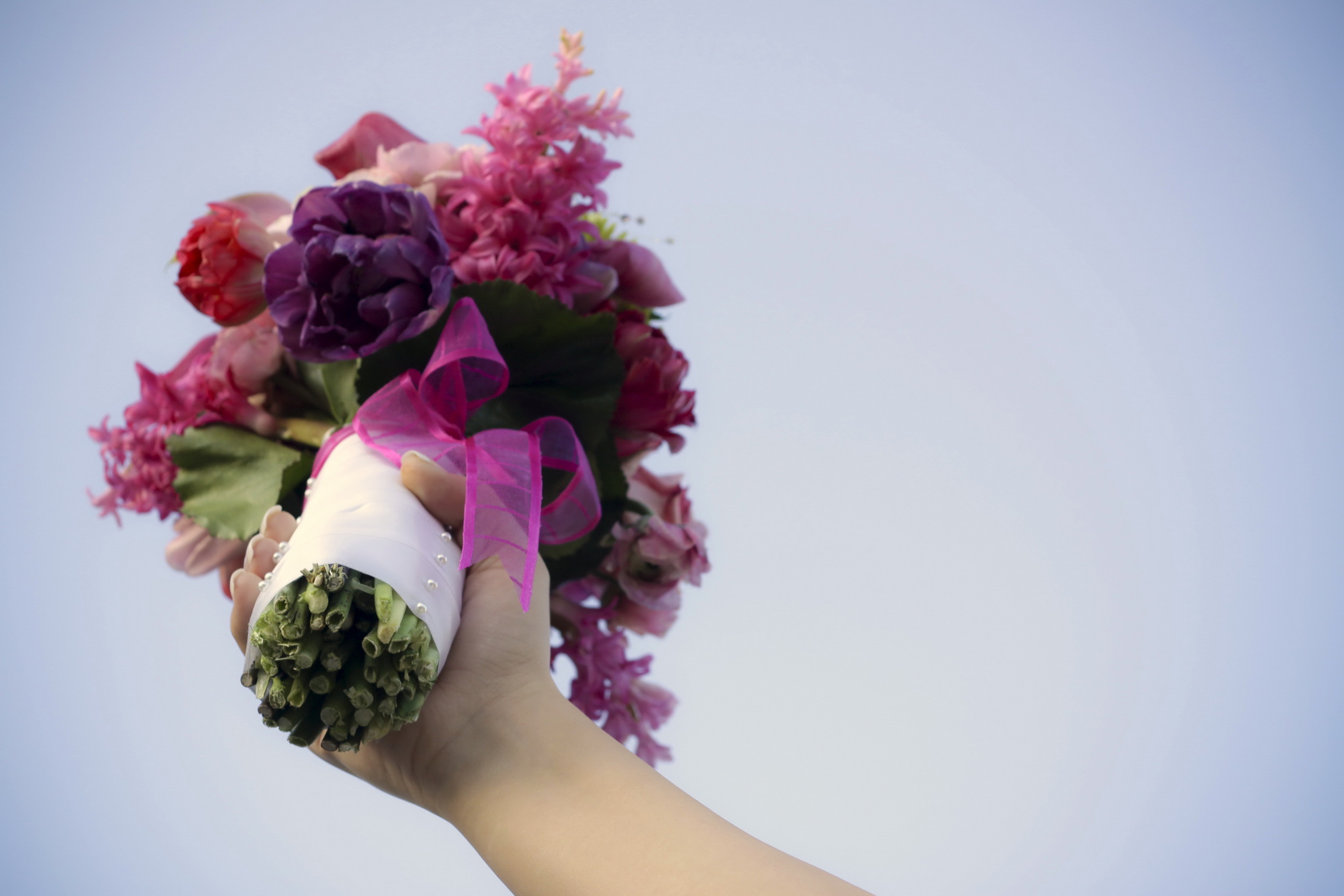 presentations that protect the photographers' copyright. Online proofing is a great solution. presentations that protect the photographers' copyright. Online proofing is a great solution.
What about getting a book?
Some photographers offer "Packages," each package having a set number of hours, images, and certain number of final pictures in a book. It might be better to get a package that includes a book that the photographer will assemble completely, because most of us never get around to putting our pictures in albums if we have to do it ourselves. Consider ordering parents' books too. If your parents vision is less than perfect, they would really appreciate getting a book with large photographs so that the faces are easy to see!
Who chooses the pictures that go in the book?
After looking at all the proof images, the bride and groom usually decide what goes in the album. The photographer may let you specify the sequence and size of the pictures, so that the album really shows the wedding the way you want to see it, with important images enlarged, and related candids grouped together. Some photographers will suggest a layout for your album or design the album with you, using proofs or computer images to show you what the final album will look like. You will benefit from the photographer's eye and feel for the wedding. You will probably let your parents decide what pictures go in their album. Since 2000, the Book Album (also called Template Album, Table-top Album, Storybook Album) uses digital techniques to put more than one image on a page. I recommend that you have your professional oversee design and production of the album, since complete wedding photography is the combination of images captured on the wedding day and the final design, cropping, color correction and special effects that complement the initial images.
What technical details in sample photographs should I watch out for?
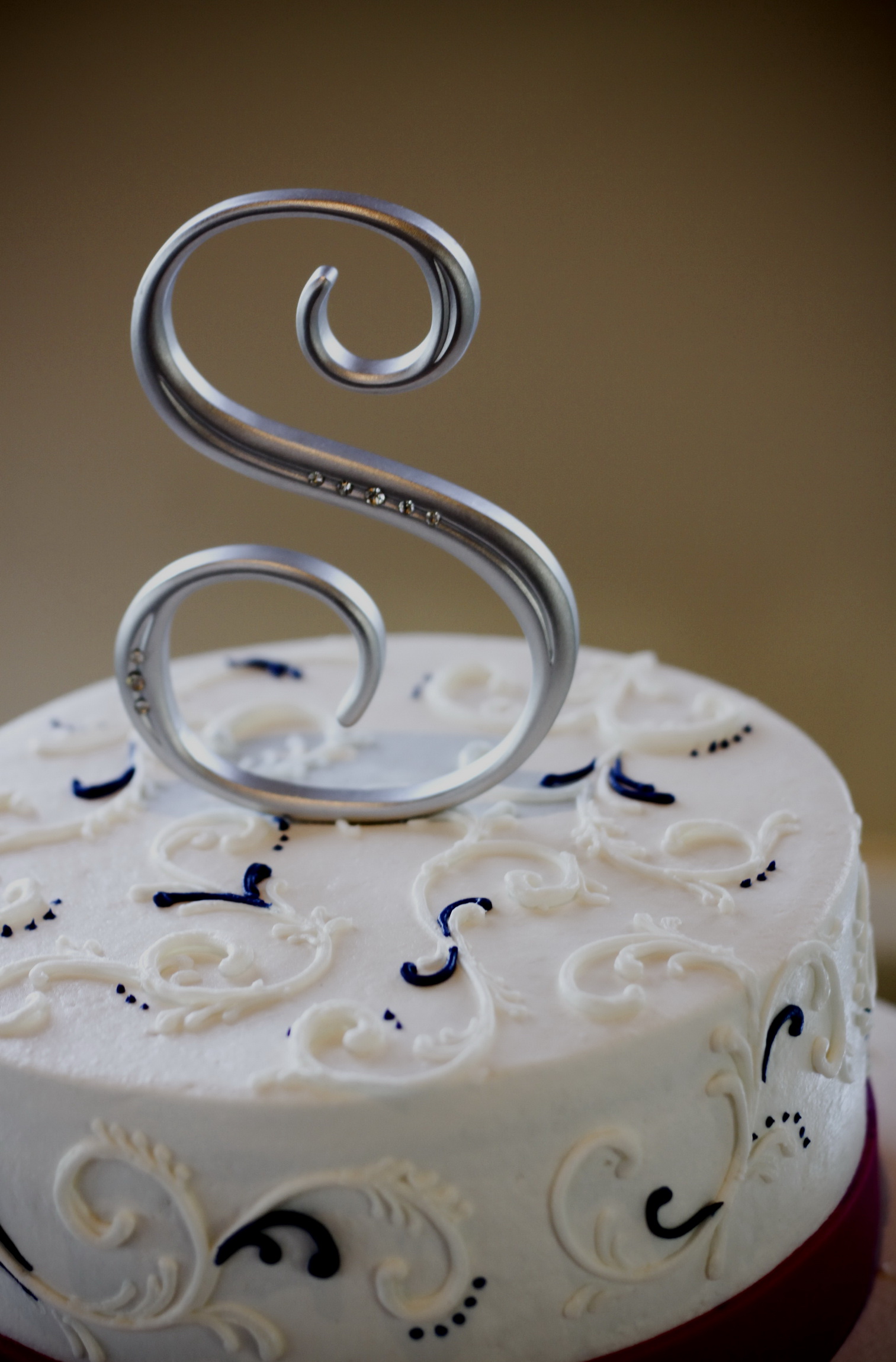 Lighting quality is an important ingredient in superior photographs. The light in photographs should be natural and flattering, so that the pictures look three-dimensional. Overuse of on-camera flash can ruin wedding pictures. Watch out for flattened faces, harsh reflections off of cheeks and foreheads, and dark shadows directly behind or next to the subjects. With finesse, a fine photographer can work with almost any outdoor lighting situation without using flash. Look for a variety in subject size - a mix of distant, medium and close-up pictures. Even with groups, lighting and posing should be interesting. The well posed wayne portrait should minimize the subjects' flaws (weight problem, blemishes, etc.) and express who the subject is and how he/she/they feel. The dramatic and scenic wedding image, like the red convertable on the show-room floor, attracts everyone's attention, but most brides and their families, like most car buyers, want what suits them personally. You want pictures that tell the story simply, with immediate impact, and as if the photographer was not even there. It's like fixing your hair or applying make-up so that it looks natural. Lighting quality is an important ingredient in superior photographs. The light in photographs should be natural and flattering, so that the pictures look three-dimensional. Overuse of on-camera flash can ruin wedding pictures. Watch out for flattened faces, harsh reflections off of cheeks and foreheads, and dark shadows directly behind or next to the subjects. With finesse, a fine photographer can work with almost any outdoor lighting situation without using flash. Look for a variety in subject size - a mix of distant, medium and close-up pictures. Even with groups, lighting and posing should be interesting. The well posed wayne portrait should minimize the subjects' flaws (weight problem, blemishes, etc.) and express who the subject is and how he/she/they feel. The dramatic and scenic wedding image, like the red convertable on the show-room floor, attracts everyone's attention, but most brides and their families, like most car buyers, want what suits them personally. You want pictures that tell the story simply, with immediate impact, and as if the photographer was not even there. It's like fixing your hair or applying make-up so that it looks natural.
Do I want film or digital capture?
Each photographer will say that his or her way is best. Look at the images - if you like 'em, that's the way to go.
What else should I look out for when I am looking at a photographer's samples?
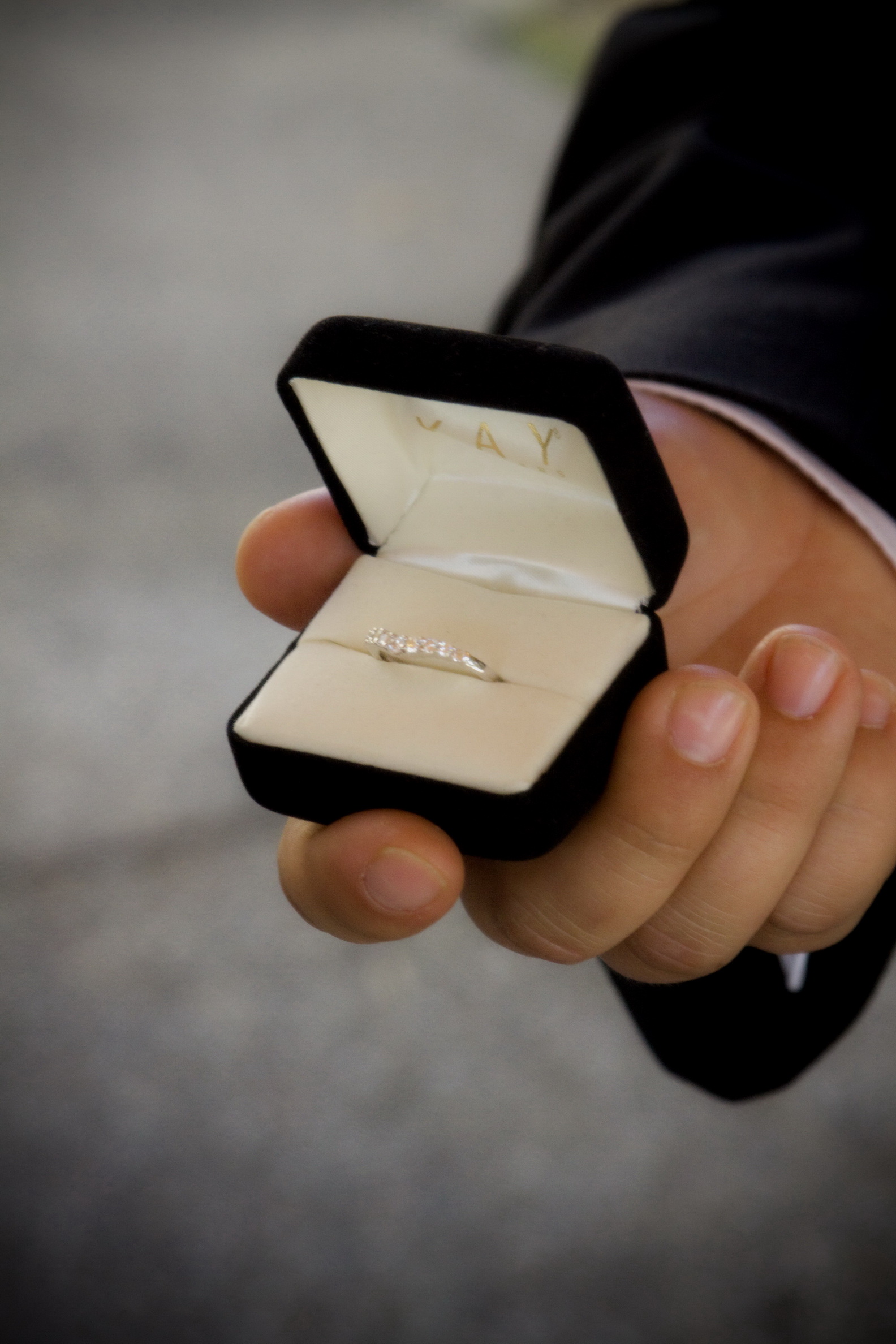 It is important that an album you see one wedding from start to finish, not just a collection of highlights from a dozen different weddings. If a photographer assembles and shows the best photos from several weddings in one album, you are not seeing an accurate representation of the results you might expect from your wedding. It is reasonable for you to expect the same quality work at your wedding that the photographer shows you when you first visit, especially if the sample images match the setting and time of day of your wedding. It is important that an album you see one wedding from start to finish, not just a collection of highlights from a dozen different weddings. If a photographer assembles and shows the best photos from several weddings in one album, you are not seeing an accurate representation of the results you might expect from your wedding. It is reasonable for you to expect the same quality work at your wedding that the photographer shows you when you first visit, especially if the sample images match the setting and time of day of your wedding.
I don't want any posed pictures at my wedding - okay?
What if your parents want a nice picture to send out? What if your favorite aunt is late, then sits in a dark corner during the reception? Do you want her excluded from your images? Posed subjects in the visual arts is classic. Bad posing (stiff, pointless, uncomfortable, cheesy) is a staple of standard wedding photography. Most families want some posed images in their collection. My posed pictures are created by finding a suitable location (easy access, good lighting, good background) and then allowing (coaching?) the couple to be themselves - playful, loving, romantic, goofy - while I capture a variety of angles and compositions. As we continue, my directions and tone-of-voice help the subjects both show more emotions and look better.
What can I do to keep the photographer from running my wedding day?
It's essential that you talk with your photographer in that last week before your wedding. Go over your time line for the day. Find out how long the photographs you have requested are going to take; If it is too long, cut out some of the required pictures. Or tell your photographer the way you have scheduled the day, and that he/she is to follow your schedule. A posed photo of cutting the cake takes ten seconds, and the rest of the cake shots 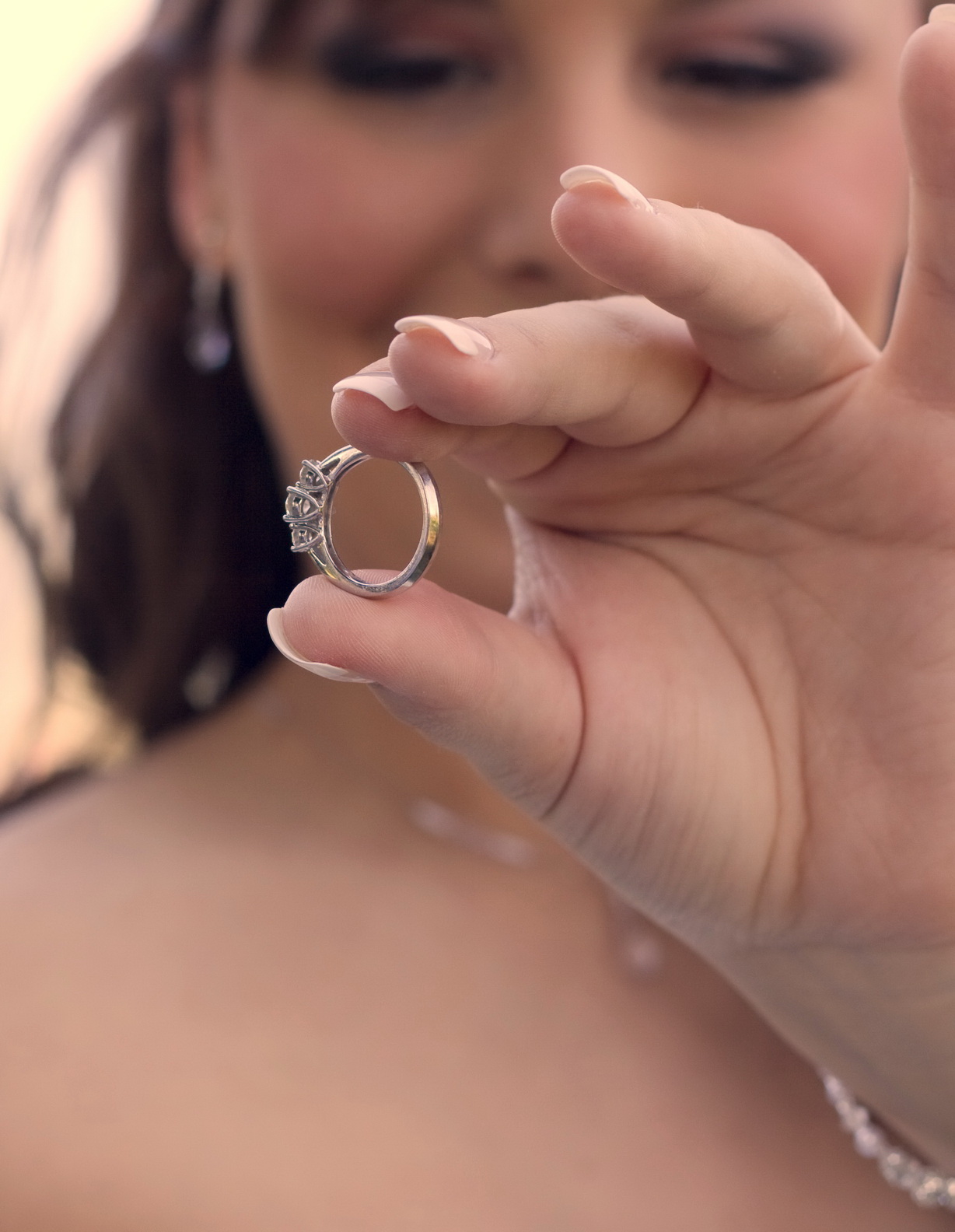 should be candid. should be candid.
Suppose I want more copies in two years?
Get the high-resolution digital files - which will either included or available for an extra fee. Since currently no electronic medium will last your lifetime, you will need to update the media on which you store your images. I have found it takes a professional color lab to produce great color prints from digital files, so owning the files does not guarantee that you are going to get the best wedding images at the best price. However, if you own the images you can use them on a website, email them, and make acceptable prints.
Shouldn't my photographer have a designated back-up in case he/she is sick on my wedding day?
That would be ideal, but consider the plight of the backup photographer who has to turn down weddings just in case she/he is needed for yours? Professionals are part of a network of photographers, and do have many people they can call in emergency. No doubt as your wedding approaches you will have many far more significant worries. Let your photographer manage this problem.
What about having two photographers?
Some studios offer two-photographer coverage - where both professionals are taking pictures. One concentrates on the formals, the other on wedding photo journalism. Other studios emphasize the relationship aspect of photography: photographs grow out of a relationship and cooperation of subject and photographer. For this approach, a second photographer is not needed. Most brides don't want to be overwhelmed with thousands of images from their wedding day. One photographer can provide you with more than enough photos.
Some photographers ask that no one else take pictures during the formal photography. Is that reasonable?
Yes. If the photographer is trying to work quickly through a series of formal pictures, a snap-shooter might slow the process. A problem arises when there are several cameras aimed at a formal group - the subjects will be looking at different lenses. The diverted attention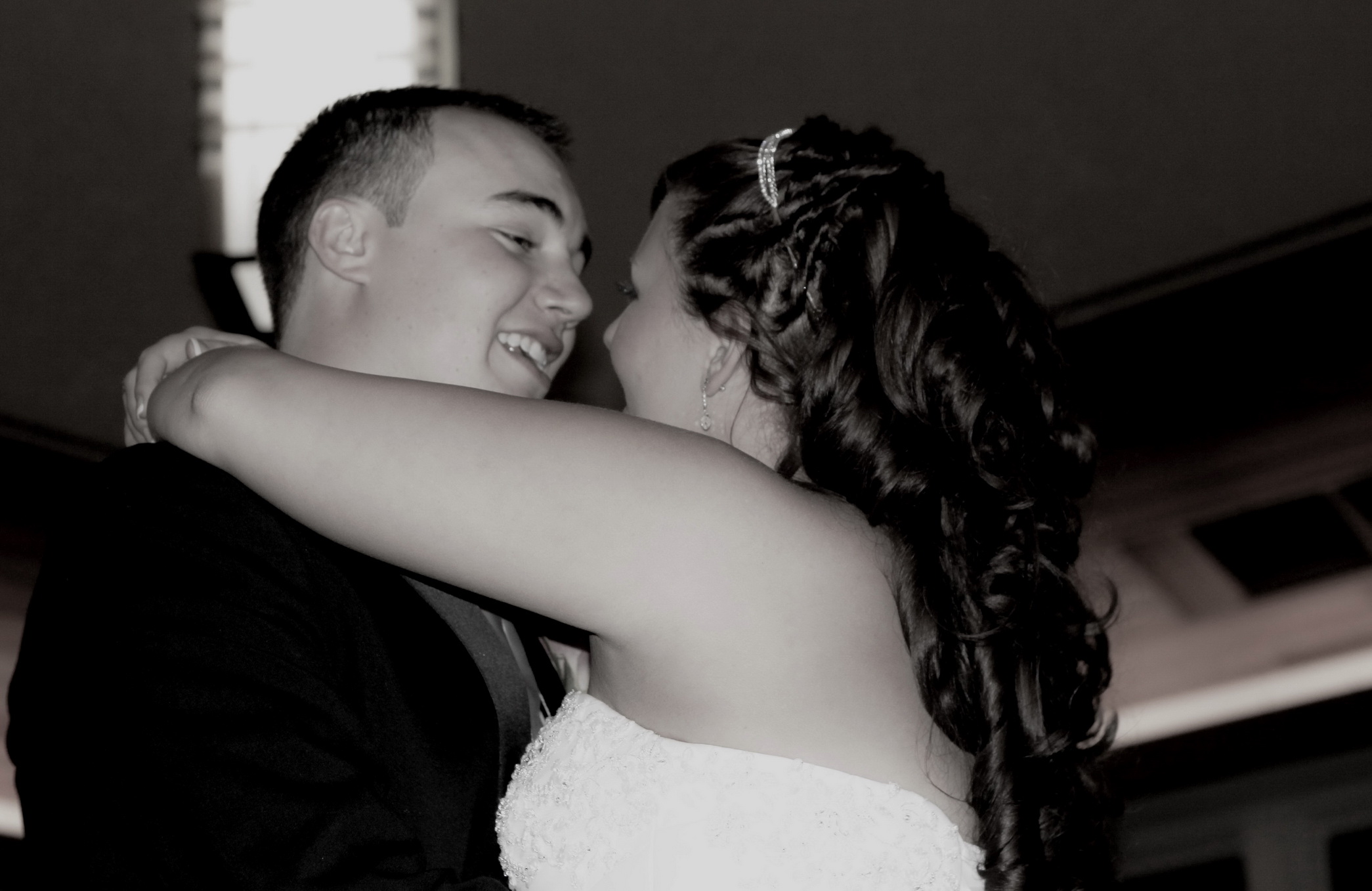 will ruin the professional's picture. Or, if the professional is using a light-sensing trigger device ("slave") on a second flash, other flashes will trigger this flash, ruining the pictures [that you are paying for] and wasting battery power. There are many other reasons why a professional might ask others to refrain from picture taking during formals. On the other hand, many guests find snapping a fewpictures a pleasant part of attending weddings, so it should not be a big deal for your professional to be relaxed and let people snap away when formals are over. Ideally, guests should show respect for the wayne party and photographer and put down their cameras during the formal photos. will ruin the professional's picture. Or, if the professional is using a light-sensing trigger device ("slave") on a second flash, other flashes will trigger this flash, ruining the pictures [that you are paying for] and wasting battery power. There are many other reasons why a professional might ask others to refrain from picture taking during formals. On the other hand, many guests find snapping a fewpictures a pleasant part of attending weddings, so it should not be a big deal for your professional to be relaxed and let people snap away when formals are over. Ideally, guests should show respect for the wayne party and photographer and put down their cameras during the formal photos.
I want to make copies of my photos. Does my photographer really own the copyright of his/her pictures? Do I still have to pay the photographer if I make the copies myself at a copy shop?
Yes and yes. According to federal law, images produced by a professional photographer are copyrighted the moment they are created. Federal law prohibits copying or reproducing copyrighted material without permission from the owner of the copyright, i.e., the photographer. If you copy or scan your photos, the photographer should be paid just as if you were buying reprints. If you or your videographer transfer the proofs to videotape, the photographer should be paid just as if you were buying reprints. If you don't feel comfortable paying for these copies, find a photographer whose work is so good that you are glad to pay. When I really appreciate something I purchase, like a fabulous meal, an antique, a good pair of shoes, or even medical care, I do not mind paying a premium for getting the highest quality. Look for the photographer who will provide you the satisfaction of paying for job well done. |
|